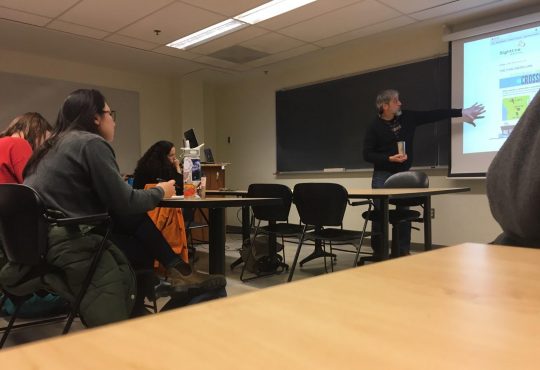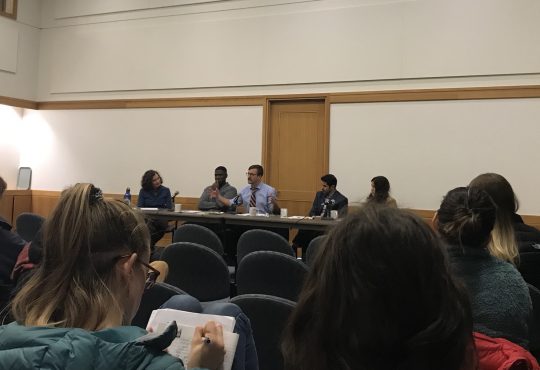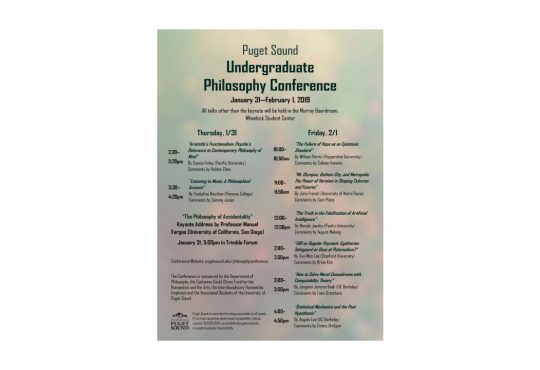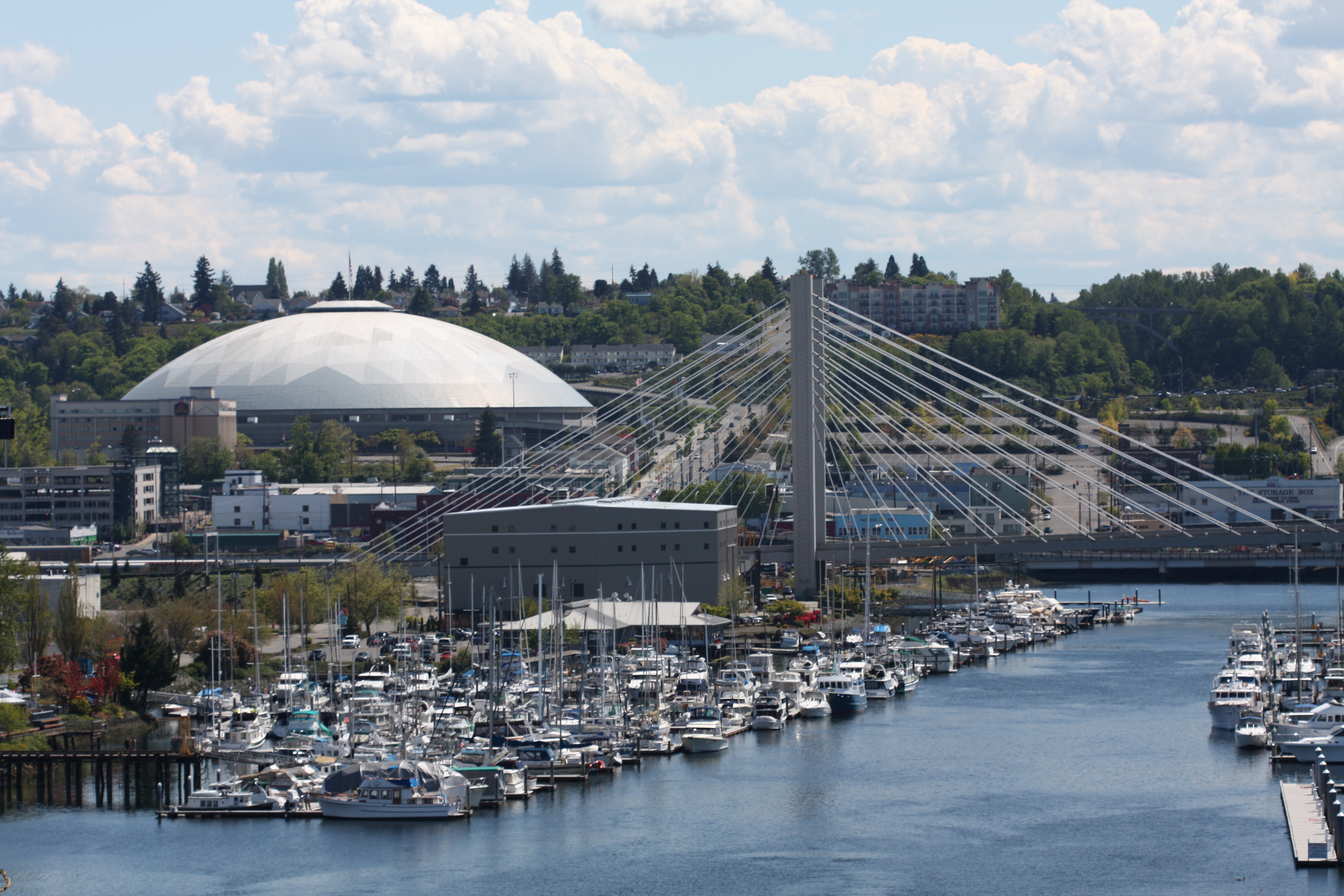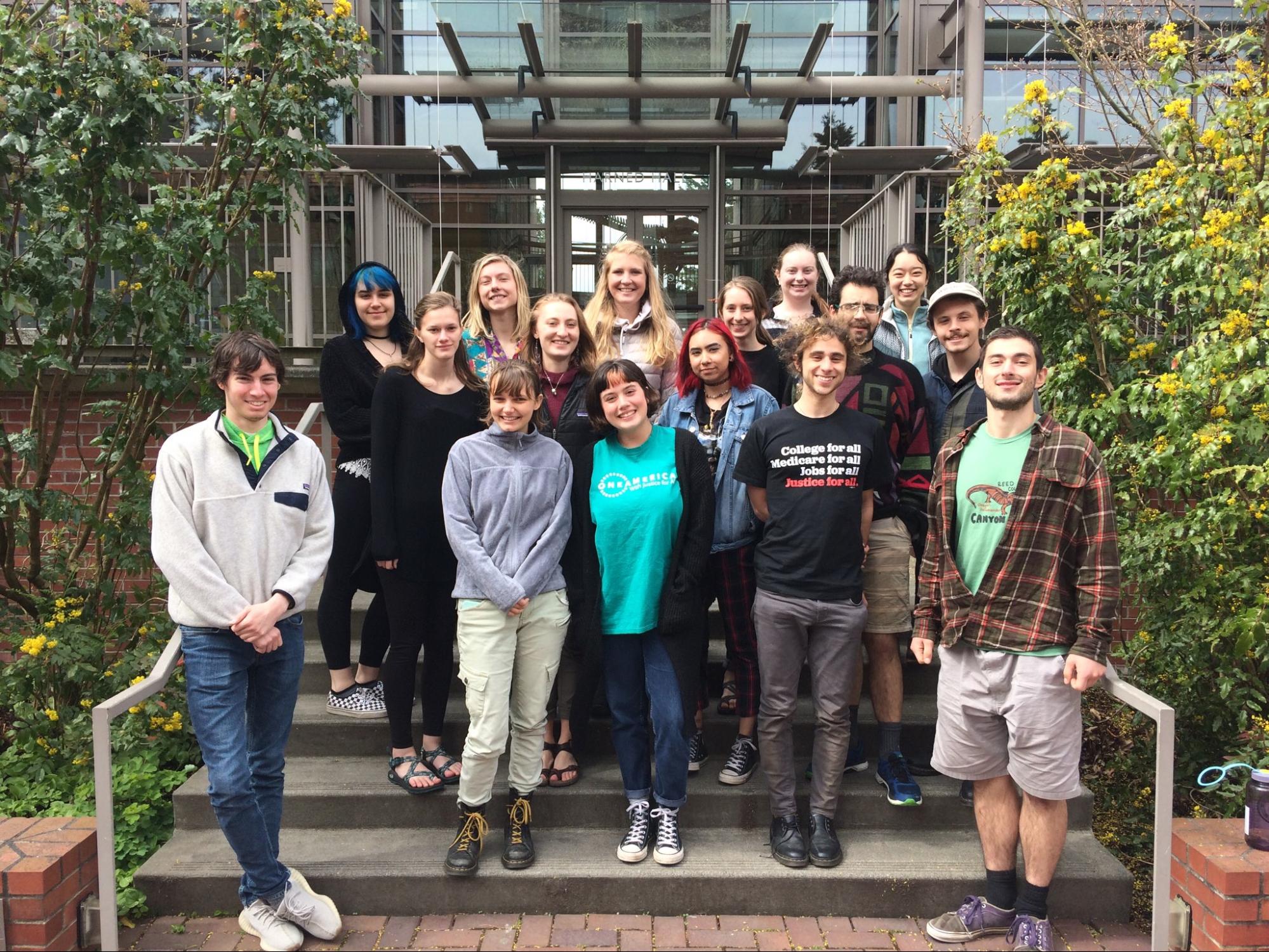
By Kylie Gurewitz and Sofia Vazquez
Between April 12-14, the University of Puget Sound hosted a conference organized by Puget Sound’s ECO Club as well as other regional ECO Clubs titled Cascade Climate Conference. This year’s theme was “Social and Economic Justice in the Environmental Movement: Exploring how social justice and economic justice has (and should) interact with the environmental movement.”
The Cascade Climate Network is an organization made up of environmental clubs at the University of Washington, Western Washington University and Reed College.
“The conference is an opportunity to make connections with students from all around the PNW and support each other’s campus and community actions. ECO comes away with new ideas and strategies after each conference, and have been inspired to do the timeline of environmental justice at UPS (2017) and Grizz’s Grub (2018),” Lisa Grim, president of the ECO club, wrote.
The conference was put on by ECO club, and students attended from similar clubs at other Pacific Northwest colleges, including Western Washington University and Reed College.
The weekend started off with a screening of the movie “Ancestral Waters,” which was created by the Native Daily Network and co-produced by Benita and Darren Moore, who were in attendance. The film focuses on the Puyallup Tribe’s fight against the Liquefied Natural Gas (LNG) plant being built in Tacoma by Puget Sound Energy, against land rights established in the Medicine Creek Treaty of 1854.
The treaty involved several Washington tribes, including the Puyallup and the Nisqually. The tribes signed away most of their land in exchange for $30,000, designated reservations and permanent rights to use traditional hunting and fishing grounds. The LNG plant is being built on the Tideflats, which would directly impact the (already polluted) waterways that are technically Puyallup land. The Moores spoke briefly on the film afterward and answered questions from the audience about the current state of the anti-LNG movement.
On Saturday morning, there was a panel titled “Intersections of Environmental, Social, and Economic Justice.” The panel consisted of three Puget Sound professors: Barry Goldstein of the Geology department, Rachel DeMotts of the Environmental Policy and Decision Making department, and Bill Kupinse of the English Department. Each professor had their own specific interest in environmental issues and involvement with local organizations. They discussed the often-overlooked role of indigenous groups in environmental issues and the histories of the United States breaking treaties such as the Washington Medicine Creek Treaty.


